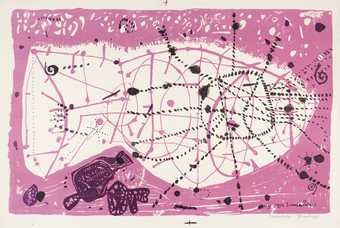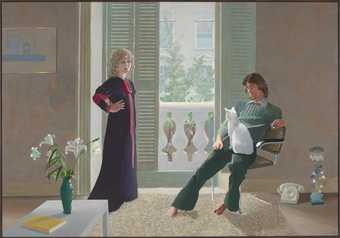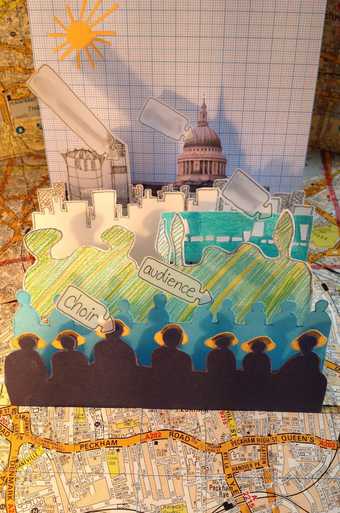How can the techniques and processes of art change the way we compose and perform poetry? Develop your skills in making poems for performance as you experiment with art and language in this six-week course led by James Wilkes. With exclusive after-hours access to Tate Britain’s BP Walk Through British Art and BP Spotlight displays, discover the work of British artists alongside a range of twentieth-century poets and writers including Louis and Celia Zukofsky, Georges Perec and Fiona Templeton.
This course is for people with an interest in art, writing and performing poetry, though no prior experience is necessary. Each session takes an interdisciplinary approach, introducing pairs of artistic and linguistic experiments that act as springboards for your own poetry compositions and performances. Readings, discussions and practical exercises with peer and tutor feedback prepare you for collaborative and individual writing and performing in a supportive environment. You will be helped to design and rehearse a collaborative piece based on material developed during the course, and have the opportunity to perform this in the galleries on Saturday 23 November during an event launching Tate Britain’s new gallery spaces and collection re-hang.
James Wilkes is a poet, teacher and researcher specialising in modern and contemporary art and literature. He has collaborated widely with scientists, artists, composers and other poets, and performed at venues including the Arnolfini, Liverpool Biennial and Ledbury Poetry Festival. His poetry has been published by Penned in the Margins and Veer, he was recently poet-in-residence at the Institute of Cognitive Neuroscience, and he has led poetry workshops and literature seminars at the Southbank Centre and Birkbeck College.
Course outline:
Weeks 1 and 2: translation
The theme of the first sessions is translation: across languages, genres and disciplines. We look at works by Tacita Dean that translate between moving and still images, and relate this to experiments in poetic translation. Using Eduardo Paolozzi’s work we explore translation as distortion, and consider the possibilities that sonic disruption holds for poetry.
Weeks 3 and 4: composition
Thinking about the way artists such as Susan Hiller use found objects, we discuss the productive tension between materials and their organisation. We play with different kinds of found language, both written and spoken, and try our own experiments with organisation and structure in writing and performance.
Weeks 5 and 6: performance
In these sessions we explore some of the ways speech and staging is deployed in performance art and poets’ theatre, reading poems which are scripts and scores and using examples from the Tate’s video archive as inspiration for building a collaborative work. You are supported to edit, organise and rehearse your material for an optional gallery performance on Saturday 23 November.



